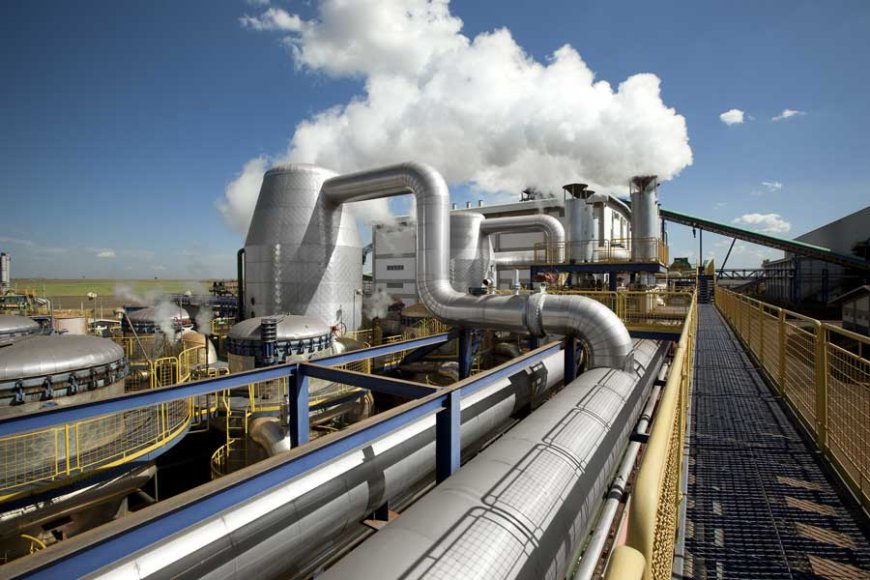Europe's Energy Crisis: Unprecedented Rise in Gas Prices Sparks Economic Turbulence
Europe's Energy Crisis: Unprecedented Rise in Gas Prices Sparks Economic Turbulence

In August 2022, Europe experienced an unparalleled surge in gas prices, sending shockwaves through the continent's economies. The cost of a megawatt-hour skyrocketed to over 300 euros, marking a staggering tenfold increase from the previous year's rate of approximately 30 euros. This dramatic escalation was attributed to a combination of factors. The global surge in energy demand, following the easing of pandemic-related restrictions, played a pivotal role. Additionally, an extended heating season in 2020/2021 and reduced contributions from renewable energy sources amplified the strain. The Russian-Ukrainian conflict in February 2022 further exacerbated the situation, underscoring the EU's reliance on Russia for 40% of its gas supply.
National Governments Step In as Energy Costs Soar
Despite modest improvements, Europe's industrial sector, particularly in Germany, the powerhouse of the EU, remains entrenched in a state of contraction. Industrial production in Germany witnessed a disheartening decline of 0.8% in July compared to the previous month. This decline was further exacerbated by an alarming 11.4% year-on-year drop in energy-intensive production. These figures underscore a looming crisis in the industrial sector, heightening concerns about the long-term stability of the European economy. Germany's vital chemical industry, which plays a pivotal role in the nation's economy, faces a daunting outlook. The Association of the Chemical Industry in Germany anticipates an 11% decline in production by 2023.
Meanwhile, the European Council of the chemical industry projects an 8% contraction across the entire region for the current year. This grim forecast is exacerbated by an 80% drop in gas prices, rendering certain production processes financially unsustainable. As a result, industry leaders are faced with tough decisions regarding operations and resource allocation. Germany, a linchpin in Europe's economic landscape, is confronted with a sharp decline in factory orders, reminiscent of levels seen at the height of the COVID-19 pandemic in 2020. Economists now predict an imminent downturn in the country's manufacturing sector, which could potentially lead to another quarterly decline shortly after emerging from recession. This ominous trend raises significant concerns about the overall health and resilience of the European economy, particularly in light of the ongoing energy crisis.
Germany's Manufacturing Sector Teeters on the Brink
"Germany's Manufacturing Sector Teeters on the Brink" signifies a critical situation in one of the most crucial components of Germany's economy - its manufacturing sector. This sector encompasses industries involved in producing goods and products, ranging from automobiles to machinery, chemicals, and electronics. Germany is renowned for its robust manufacturing prowess, and it has been a key driver of the country's economic success. However, the phrase "Teeters on the Brink" indicates that this once-vibrant sector is now facing severe challenges and is precariously close to a significant downturn.
This downturn is marked by a sharp decline in factory orders, which is a clear sign that demand for manufactured goods is weakening. The situation is particularly concerning as this decline is comparable to the levels seen during the height of the COVID-19 pandemic in 2020. This suggests that the manufacturing sector, which had already been struggling due to various economic factors, is now facing renewed and possibly even more severe difficulties. Economists and experts are deeply concerned about the implications of this downturn.
It could lead to a further contraction in the sector's output, which could have ripple effects on employment, business profitability, and the overall health of the German and European economies. This situation is especially critical given Germany's pivotal role as the largest economy in the European Union. The challenges faced by the manufacturing sector in Germany also have broader implications for the EU and global economy. As a major exporter of manufactured goods, a weakened German manufacturing sector can impact international trade dynamics, potentially influencing global supply chains and economic growth in various regions.
The unprecedented surge in gas prices in Europe, driven by a combination of factors, has sent shockwaves through the continent's economies. The industrial sector, particularly in Germany, is grappling with significant challenges, with production levels teetering on the brink. This critical situation raises concerns not only for Germany but also for the broader European and global economies, given Germany's pivotal role in international trade and its status as the largest economy in the EU. The ongoing energy crisis further underscores the need for strategic planning and policy interventions to navigate these turbulent economic times.













































